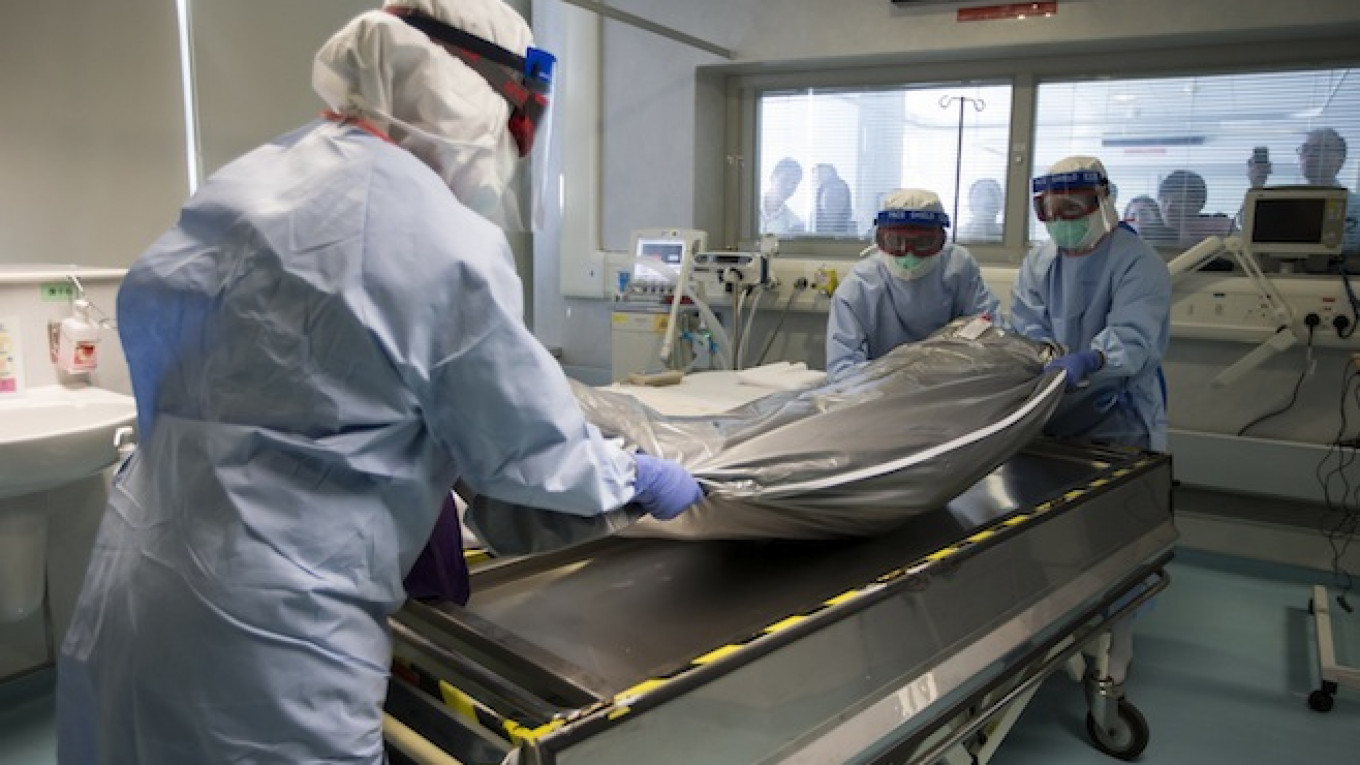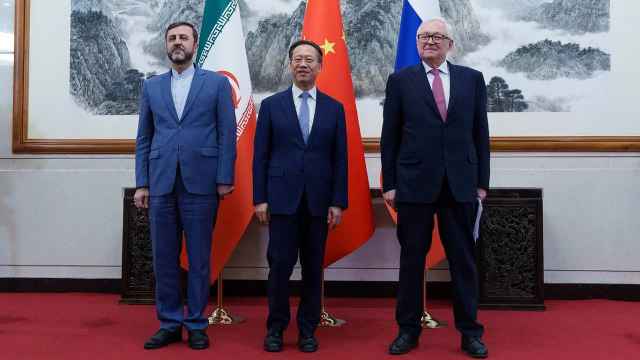Russia is beginning the production of an antiviral drug it has approved for the treatment of Ebola, a news report said, while a senior World Health Organization official urged stronger international efforts to contain the virus outbreak in West Africa.
The Russian Health Ministry has approved the production of the drug, Triazavirin, developed by researchers at the Institute of Organic Synthesis in the Urals region, said Sergei Kortov, a senior official at a regional patent service, the Novy Region news agency reported Tuesday.
The approval followed 20 years of research and a series of clinical trials on 100 volunteers from the Ural Mountain regions of Chelyabinsk and Yekaterinburg, and on employees of a flu research institute in St. Petersburg, the report said.
The drug was developed as a broad-range antiviral medication, and the website of St. Petersburg's Research Institute of Influenza says that studies have shown it to be effective against various types of the flu, including avian and swine flu, as well as against tick-borne encephalitis.
The report came amid warnings by a senior official at the World Health Organization that the Ebola outbreak in West Africa was spreading faster than anticipated.
Bruce Aylward, an assistant director general of WHO, said Tuesday in Geneva that the disease was rising at an "almost exponential" rate, with the number of reported cases reaching 4,985, including 2,461 deaths, half of them in the past three weeks, The New York Times reported.
"We don't really know where the numbers are going with this," Aylward was quoted as saying.
A treatment and containment plan proposed three weeks ago was intended to handle up to 20,000 cases, but now health officials feared that keeping the numbers "in the tens of thousands" would require a much faster response, Aylward was quoted as saying.
Russia's Health Minister Veronika Skvortsova said earlier this month that an experimental vaccine against Ebola had successfully passed preclinical trials and was ready to use, but he did not name the drug.
A Message from The Moscow Times:
Dear readers,
We are facing unprecedented challenges. Russia's Prosecutor General's Office has designated The Moscow Times as an "undesirable" organization, criminalizing our work and putting our staff at risk of prosecution. This follows our earlier unjust labeling as a "foreign agent."
These actions are direct attempts to silence independent journalism in Russia. The authorities claim our work "discredits the decisions of the Russian leadership." We see things differently: we strive to provide accurate, unbiased reporting on Russia.
We, the journalists of The Moscow Times, refuse to be silenced. But to continue our work, we need your help.
Your support, no matter how small, makes a world of difference. If you can, please support us monthly starting from just $2. It's quick to set up, and every contribution makes a significant impact.
By supporting The Moscow Times, you're defending open, independent journalism in the face of repression. Thank you for standing with us.
Remind me later.






